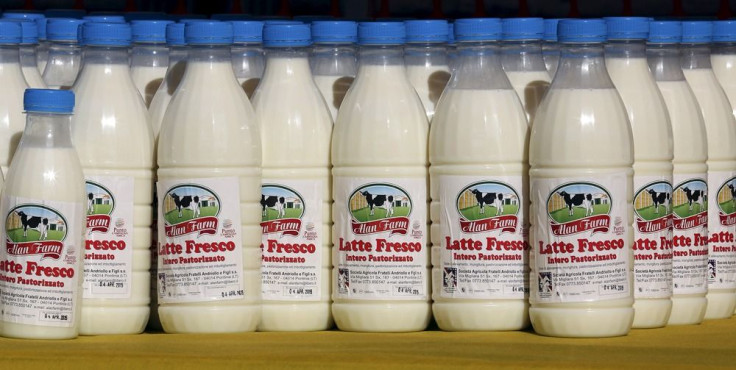New Zealand Dairy Products Hit By China’s Stock Market Crash

New Zealand’s dairy products, already under pressure from depressed Chinese demand, faced another battering when the Chinese stock markets crashed. This led to considerable uncertainty in the dairy markets and hit the prices, according to leading New Zealand banks.
The difficulties from Greek crisis also added to New Zealand’s woes with New Zealand dollar hitting a five-year low as investors seem to be moving away from commodity dependent currencies to safer Yen and U.S. dollar. In New Zealand, the dairy fell 5.9 percent at the dairy auction on July 1, with prices for whole milk powder dipping more than 10 percent. Adding to it was, the downfall in Chinese markets that exerted another negative downward pressure on New Zealand commodity prices, reported ABS Commodities.
New Zealand market confidence may be hit with further price drops are expected at the upcoming dairy commodity auction on July 15. ABS commodities report that future milk pricing will also see a similar dip at the next dairy auction.
Shanghai Exchange
In China, the Shanghai Stock Exchange Composite Index fell 30 percent since June 12. The most drastic fall occurred after prolonged growth that had the stock exchange rising 160 percent since early 2014. But there is a note of consolation from ABS Commodities that the sudden drop in the Chinese market value will not have a negative impact on dairy products on the ground. The rationale is that increase in stock market value did not result in increased food purchasing by the Chinese public. Therefore a fall in stock market will not result in reduction in retail food spending, according to analysts.
Cow Cull Up
Meanwhile, New Zealand dairy cull has been up by 21 percent. This is driven by strong beef price and low milk prices. The farmers seemed to be taking advantage of higher beef prices as they remove underperforming animals from their herds. Matthew Newman, economist with DairyNZ is of the view that cull cow numbers increased by 185,650, that is about 21 percent.
There are multiple reasons for culling. But strong beef price cited as the main reason. Dairy culls, which were a valueless activity in the past, are now a valuable cash-flow item. The economists have identified the poor milk price and dry weather conditions as other reasons. New Zealand milk production had a fall of 2 percent in 2014. “There are three main reasons for the increase in culling rates – higher beef prices, lower milk price and early dry summer conditions,” said Lee McDonald, South Island Dairy Farmers. McDonald predicts that culling rates will double with early estimates of 15-17 percent. Andrew Hoggard, Federation Farmers Dairy chairman predicts that 2015 will not be a boom year for dairy farmers and added “my gut feeling is that it will not be a super-boom year in terms of production.”
(For feedback/comments, contact the writer at k.kumar@ibtimes.com.au)





















